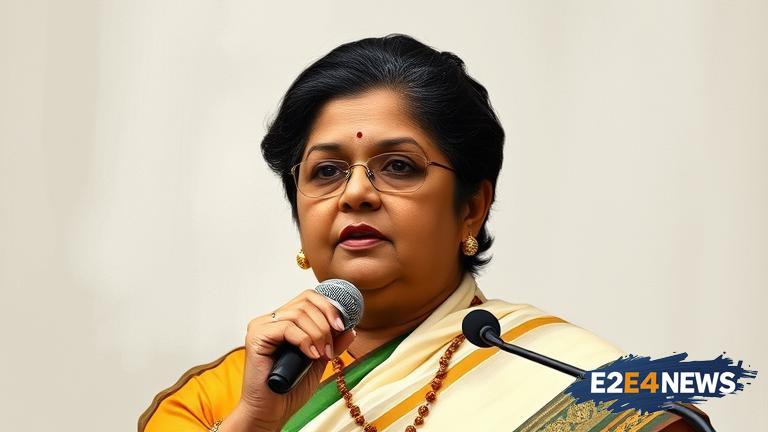In a significant development, Bahujan Samaj Party (BSP) chief Mayawati has made it clear that her party will not be part of either the National Democratic Alliance (NDA) or the Indian National Developmental Inclusive Alliance (INDIA). This announcement comes as a major blow to both alliances, which were hoping to woo the BSP into their fold. Mayawati’s decision is seen as a strategic move to maintain the party’s independence and strengthen its position in the upcoming elections. The BSP has been a key player in Indian politics, particularly in the state of Uttar Pradesh, where it has a significant following. Mayawati’s statement has sparked a flurry of reactions from political parties across the spectrum. While the NDA has expressed disappointment at the BSP’s decision, the INDIA alliance has termed it as a ‘setback’. The Congress party, which is a key constituent of the INDIA alliance, has said that it respects the BSP’s decision and will continue to engage with the party. The BSP’s decision is also seen as a reflection of the party’s commitment to its core ideology and values. Mayawati has consistently maintained that the BSP will not compromise on its principles and will only ally with parties that share its vision. The party’s focus on social justice and empowerment of marginalized communities has resonated with its supporters, who see the BSP as a beacon of hope. The BSP’s decision to go solo is also seen as a testament to Mayawati’s leadership and her ability to take tough decisions. The party’s supporters have rallied behind Mayawati, expressing confidence in her ability to lead the party to victory. The BSP’s campaign is expected to focus on issues such as education, healthcare, and employment, which are critical to the party’s core constituency. Mayawati has also announced that the BSP will field candidates in all constituencies, signaling the party’s intention to contest the elections aggressively. The party’s election strategy is expected to be unveiled in the coming weeks, with Mayawati set to address a series of rallies and public meetings. The BSP’s decision to contest the elections alone is also seen as a challenge to the dominant parties, which have traditionally held sway over Indian politics. Mayawati’s statement has sparked a debate on the role of regional parties in Indian politics, with many arguing that the BSP’s decision reflects the growing assertiveness of regional parties. The BSP’s decision is also seen as a reflection of the party’s commitment to its supporters, who have stood by the party through thick and thin. Mayawati’s leadership has been praised by her supporters, who see her as a champion of social justice. The BSP’s campaign is expected to be marked by a series of high-profile rallies and public meetings, with Mayawati set to address large gatherings of supporters. The party’s social media campaign is also expected to be aggressive, with the BSP using platforms such as Twitter and Facebook to reach out to its supporters. The BSP’s decision to contest the elections alone is seen as a bold move, which could have significant implications for Indian politics. Mayawati’s statement has sent a clear message that the BSP will not be swayed by the lure of power or compromise on its principles. The party’s commitment to its core ideology and values has been reaffirmed, and its supporters have rallied behind Mayawati. The BSP’s campaign is expected to be marked by a series of significant announcements, with Mayawati set to unveil the party’s election strategy in the coming weeks.





